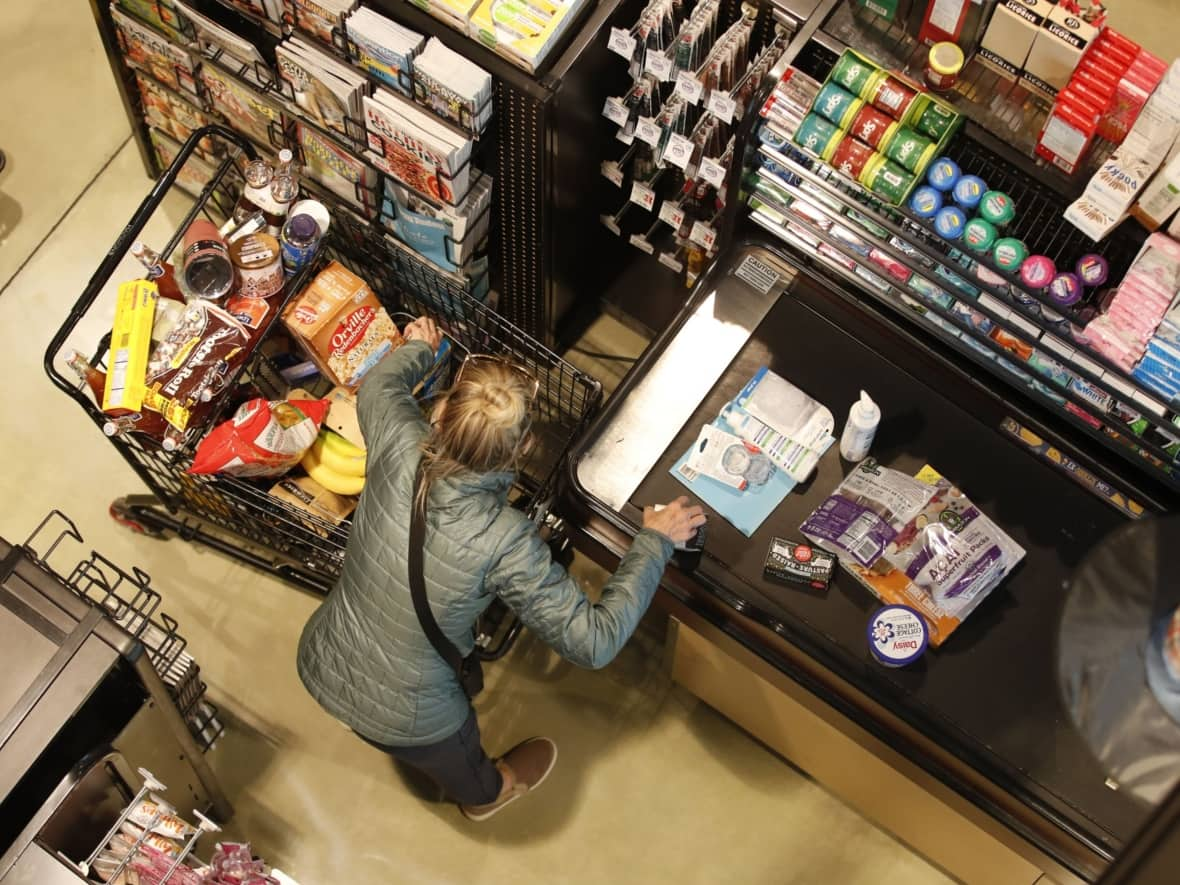From groceries to booze, payday loans to plane tickets — here's what the budget means for your wallet

With inflation still near its highest level in decades, the federal budget unveiled in Ottawa Tuesday offered a lot of talk about making life more affordable for Canadians — but few details about how it's all going to work.
One of the biggest items leaked prior to the budget's release is something the government is calling a "grocery rebate" meant to mitigate the cost of grocery prices that are still rising at an annual rate of more than 10 per cent.
It's an extended version of the existing GST rebate cheque program, which gives cash payouts to refund GST payments incurred by low-income Canadians.
The government says the rejigged program will put an extra $467 into the pockets of the average family with two kids, and $234 for a single person. Government estimates suggest they think roughly 11 million people will qualify for the program, which is to be doled out via a quarterly cheque or direct deposit.
As overall inflation eases, grocery prices remain stubbornly high
Strictly speaking, the government isn't requiring that the money be spent on groceries. But the program's branding suggests Ottawa hopes it will deliver $2.5 billion in relief where many Canadians need it most — in the checkout aisle.
That's good news for people like Krystle Kisman, a single mother from Burlington, Ont., for whom putting food on the table has been a major source of stress of late.
"I remember I used to spend $200 every two weeks and I would get double what I'm getting now," she told CBC News this week. "It's tough. A lot of times I use my child tax credit towards our food for the month."
The grocery program is targeted at people like Kisman, who have had to face impossible choices between paying rent and paying for food.
There's very little else in the budget in the way of direct payments to Canadians to blunt the impact of inflation. But the document is also sprinkled with programs and policy ideas aimed at helping consumers keep a little more of the money they already have.

In recent weeks, the beer and alcohol industry has been sounding the alarm about a looming hike to the federal tax on beer, wine and spirits. The so-called excise tax is pegged to inflation, which means it was on track to increase by more than six per cent this weekend — a jump that would have taken the toll to 73 cents on a litre of wine and more than 37 cents for a litre of beer.
Those excise fees are paid by brewers, wine and spirit makers, but the costs filter down for consumers as they add to the cost of doing business, and pushing up retail prices.
The government announced in the budget that it will slash that increase to two per cent for this year, well below the inflation rate.
Government is capping increases in alcohol duty
The budget also aims to rein in some of the more exorbitant costs that some Canadians pay to borrow money. While rates on conventional personal and business loans from major lenders tend to hover between the low single digits for a mortgage to slightly over 10 per cent for other forms of unsecured debt, that's not true for all types of loans.
That's why the budget targets what the government calls "predatory lending" by changing loopholes that currently allow some lenders to charge rates as high as 47 per cent per year.
The government says it's going to amend the Criminal Code to cap those rates at 35 per cent, in line with existing regulations already on the books in Quebec.
Payday loans are currently exempt from that legislation due to various loopholes. Those loans are typically for small amounts of up to $1,500 and only for terms of up to two months — but despite their short term, their costs are far higher than other loans, as annualized rates can sometimes approach 400 per cent.
The government says it plans to tighten and eliminate some of those loopholes by requiring payday lenders to charge no more than $14 for every $100 borrowed. And says it will consult with the provinces on additional revisions on how to further regulate the payday-lending industry.
Credit card fee reductions
The government also laid out new rules for another source of frustration for small businesses and consumers: credit card fees.
Every time a customer swipes a credit card to pay for a purchase, the vendor pays what's known as an interchange fee to the credit card company processing the transaction.
In Canada, such fees on some cards can amount to up to three per cent of the purchase price — far higher than they are in jurisdictions where they are capped.
While the budget stops short of imposing such a cap, the government did say it has struck a deal with the major credit companies that will see interchange fees reduced by about 27 per cent for about 90 per cent of the businesses that accept credit cards.
Dan Kelly, president of the Canadian Federation of Independent Business, said the lowering of fees is a good start, but more is needed. "A reduction of up to 27 per cent reduction in small business merchant fees is significant, but more details are needed to determine how many small businesses will benefit from this plan," he said.

Government estimates suggest the new fee structure will save small businesses $200 million a year, savings that should theoretically filter down to consumers since a court ruling last fall established that merchants are allowed to pass those fees on to consumers directly now.
Credit card fees aren't the only hidden fee facing scrutiny. Although it offers few details, the government says it wants to crack down on what it calls "junk fees" that get tacked on to goods and services.
The government says it wants to work with the provinces and various regulators to examine things like cellphone roaming charges, ticket fees and excessive baggage fees — just a few examples of the sort of nickel-and-dime fees that annoy consumers.
Travel fees set to increase
But even as the government talks tough about getting rid of hidden fees, it's actually increasing one that Canadians pay every time they get on a flight.
The Air Travel Security Charge is one of many fees that flyers pay when they buy a plane ticket. The money goes to funding and improving vital airport services like passenger screening and baggage handling.
First implemented in 2002 after the Sept. 11 attacks, the fees have not increased since 2010, when they jumped up by more than 52 per cent to their current level.
Improvements to airport security are coming — at a price
The budget has earmarked an extra $1.8 billion to help fix the travel chaos that Canadians have experienced at airports of late, but it will come at a hefty cost for consumers. The Air Travel Security Charge is set to increase by almost 33 per cent next year.
That will bring the added fee on a one-way ticket within Canada to $9.94, on a flight to the U.S. to $16.89, and on a trip overseas to $34.42.

Economist Armine Yalnizyan said that, coming from a government claiming to be focused on helping Canadians deal with high inflation, the budget offered little of substance.
"Something is better than nothing," she said of the grocery rebate program, "but affordability got the short shrift in this budget."
She said tackling junk fees plays well among voters who can afford to do things like go on vacation and buy concert tickets, but they don't help with the pain of necessities like food, shelter, and gas.
"They are catering to people who are inconvenienced by problems at the airport and the Taylor Swift crowd and saying 'we are going to deal with Ticketmaster maybe' but inconvenience is different than going hungry."
"You don't want to worry about inconvenience at a time of basic affordability."


